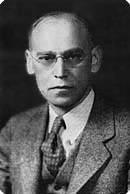Herbert Schneider (philosopher)
| Herbert W. Schneider | |
|---|---|
 |
|
| Born |
March 16, 1892 Berea, Ohio, United States |
| Died | October 16, 1984 (aged 92) Claremont, California, United States |
| Nationality | American |
| Occupation | university professor |
| Spouse(s) | Carol, Genafore |
| Children | 3 |
| Academic background | |
| Education |
City College of New York, Columbia University (B.A., 1915) Columbia University (Ph.D., 1917) |
| Thesis title | Social Progress: A Philosophical Introduction to Moral Science |
| School or tradition | Columbia Naturalism |
| Doctoral advisor | John Dewey |
| Academic work | |
| Discipline | Philosophy |
| Sub discipline | Ethics, Ontology, Education, Political Theory |
| Institutions | Columbia University, Colorado College, Claremont Colleges |
| Notable students | Theos Bernard |
| Main interests | social philosophy, ontology, pragmatism, fascism |
| Notable works |
The Puritan Mind (1930) A History of American Philosophy (1946) |
Herbert Wallace Schneider (March 16, 1892 – October 15, 1984) was an American professor of philosophy and a religious studies scholar long associated with Columbia University.
Born in Berea, Ohio, Schneider completed his undergraduate and graduate education at Columbia, going on to teach at that school for many years. An early student of John Dewey, he studied pragmatism, ontology, social philosophy, and fascism, and is best remembered for his works The Puritan Mind (1930) and A History of American Philosophy (1946). The Herbert Schneider Award, an annual presentation of the Society for the Advancement of American Philosophy, is named in his honor.
Herbert Schneider was born in Berea, Ohio, where his father, Fredrick William Schneider, a German Methodist minister, was a professor at German-Wallace College. The family moved to Brooklyn when Fredrick accepted a call to the Greene Ave. Methodist Church. There, Herbert attended Boy's High School. He attended the City University of New York as an undergraduate before transferring to Columbia University from which he earned a B.A. magna cum laude and was elected to Phi Beta Kappa. As a graduate student at Columbia, Schneider studied under John Dewey, later serving as Dewey's teaching assistant. His doctoral thesis was titled Science and Social Progress: A Philosophical Introduction to Moral Science.
Beginning in 1918 Schneider lectured in philosophy and religion at Columbia University, a post he held until his retirement in 1957. He early assisted John Erskine in teaching the very first sessions of his revolutionary Great Books course, and, as a member of the team led by Harry Carman, developed Columbia College's core curriculum Humanities and Contemporary Civilization courses>. For 37 years, beginning in 1924, he was editor of The Journal of Philosophy, Psychology and Scientific Methods. In 1928 he was installed into the newly created post of Professor of Religion, becoming one of the founding members of Columbia's newly formed religion department.
...
Wikipedia
